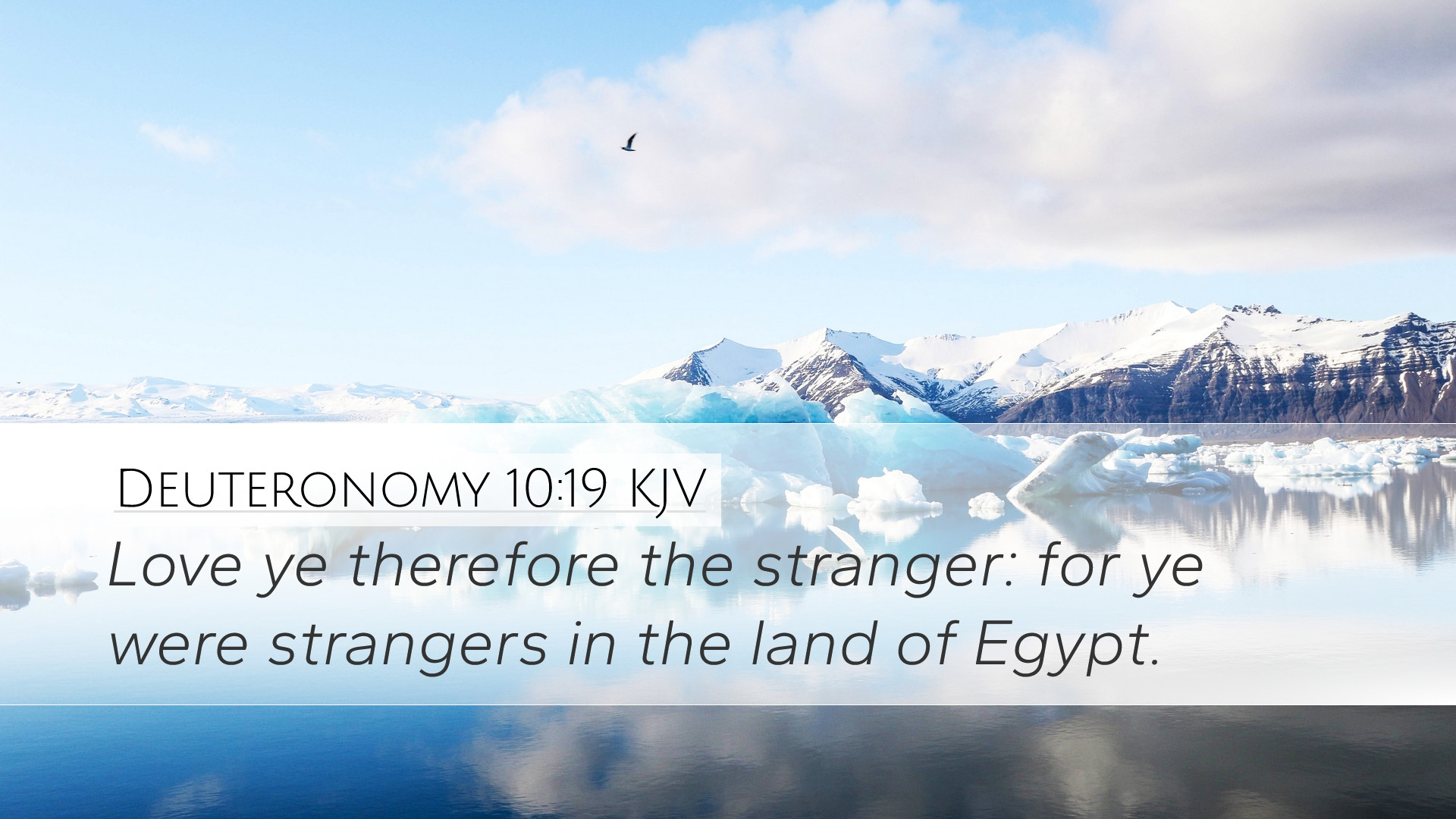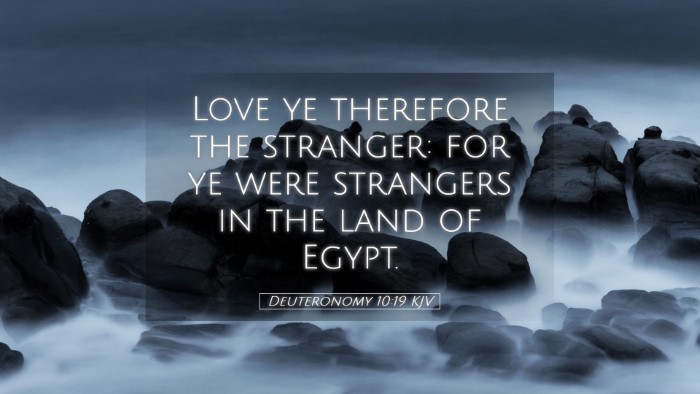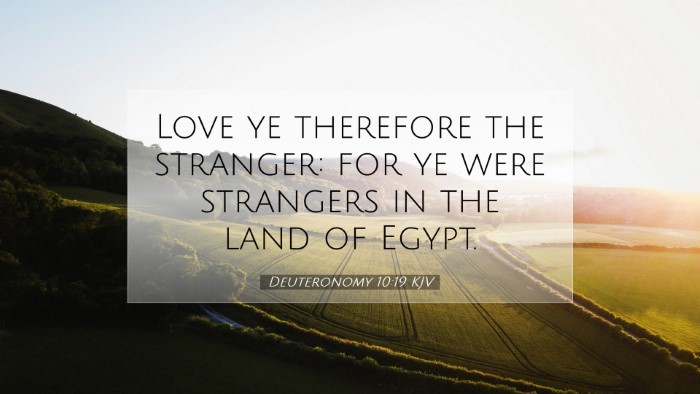Commentary on Deuteronomy 10:19
Verse Reference: Deuteronomy 10:19 - "Love ye therefore the stranger: for ye were strangers in the land of Egypt: I am the LORD your God."
Introduction
The instruction to love the stranger is deeply embedded in the ethical framework of the Old Testament. This directive not only encapsulates a key aspect of Israelite identity but also reflects the broader theological commitment to justice, mercy, and grace that permeates the Scriptures. As we explore the insights drawn from various public domain commentaries, we aim to extract meanings that resonate with contemporary theological discourse.
Theological Significance
Deuteronomy 10:19 serves as a reminder of Israel's own narrative— a nation with a history of displacement and vulnerability. Matthew Henry emphasizes the importance of remembering one's own humble beginnings. He articulates that the Israelites, having experienced oppression and alienation, are called to extend love and compassion to the strangers among them.
Albert Barnes elaborates on this command by highlighting its implications for social ethics within the community. He remarks that the command to love the stranger is grounded in the nature of God Himself—who is merciful and kind. God's transcendence is thus mirrored in the societal conduct of His people.
Contextual Background
This command is part of Moses' exhortation to the Israelites regarding their relationship with God and their conduct towards others. Adam Clarke contextualizes this within the larger covenantal framework, asserting that Israel's identity as God's chosen people necessitates a lifestyle reflective of God's character. The reminder that they were once strangers in Egypt calls them to act with empathy.
- Historical Context: The Israelites were once sojourners in a foreign land, and their liberation was marked by God's mercy.
- Israel’s Identity: Their experience as strangers enables them to recognize the plight of others who find themselves in similar situations.
Ethical Implications
The ethical call to love the stranger is multifaceted. Matthew Henry explores how this love manifests practically within the community. He posits that it encompasses hospitality, compassion, and justice—elements essential for a society that mirrors God’s kingdom.
Similarly, Albert Barnes points out that this commandment directly combats xenophobia and prejudice, emphasizing that the people of Israel, having been recipients of God's grace, are obliged to extend that grace to others.
Application for Today
The enduring relevance of Deuteronomy 10:19 is apparent in today’s societal landscape, which often grapples with issues of immigration, refugees, and social justice. The call to love the stranger resonates across cultural and temporal lines, reminding believers of their duties towards the marginalized.
- Engagement with the Marginalized: How contemporary communities can engage with and serve those who are 'strangers' in their midst.
- Ethical Living: Encouraging ethical conduct that honors God's character through acts of kindness and justice.
Conclusion
Deuteronomy 10:19 serves as a profound reminder of God's justice and mercy. As Matthew Henry, Albert Barnes, and Adam Clarke elucidate the verse, the fundamental requirement to love the stranger not only reflects God's heart for inclusion and compassion but also clarifies the ethical responsibilities of God’s people. The historical context of Israel provides a powerful narrative that shapes our understanding of what it means to love and serve the other in faith communities today.


